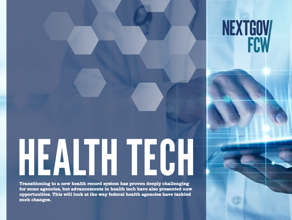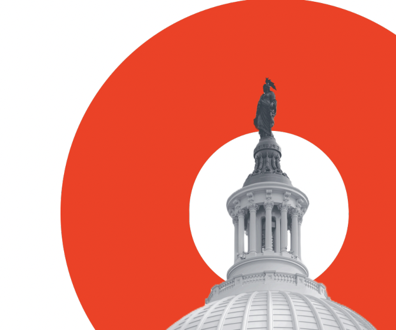
Shutterstock.com
The GREAT Act: Scaling the Tower of Babel
A bewildering array of forms and data elements across multiple agency reporting systems needlessly complicates grants management. That’s about to change.
In a rare bipartisan move, last December Congress passed legislation to simplify the federal grants reporting system. President Trump signed the Grant Reporting Efficiency and Agreements Transparency Act on December 30, giving agencies three years to update their data collection systems.
To understand the importance of the GREAT Act, it helps to understand the challenge: Last year, more than 35 federal agencies awarded nearly $750 billion in grants to 40,000 grant recipients through 1,800 different programs. But the reporting systems for these grant programs is a diffuse, cumbersome, document-based process where recipients fill out a bewildering array of forms across multiple agency reporting systems—a veritable Tower of Babel.
For example, a detailed 2017 study of the grant reporting system led by the Department of Health and Human Services HHS discovered “over 440 unique federal grant reporting forms containing similar data collection requirements while using different titled data elements (e.g., Street Address versus Address 1 versus Street Address Line 1).“ It concluded that “Such variation in data definitions confuses recipients and prevents interoperable agency information technology systems.”
In a subsequent summary report to Congress on the status of the grant reporting system, the Office of Management and Budget elaborated even further. It noted that in examining just 30 of 115 OMB-approved standard grant reporting forms, it found 371 instances of requests for duplicative data elements. Even more shocking, in inventorying 11,842 financial assistance data elements, only 112 had standard definitions.
OMB concluded that grant reporting could be simplified and be more accurate and more timely, and offered four recommendations to reduce grant recipient administrative burdens:
- Require that reported data elements be defined and standardized in a central, open repository.
- Require reported data to be collected and maintained in a central location.
- Encourage use of IT that can auto-populate data from existing federal sources across government programs.
- Have resources available to explain requirements and business processes.
Congress to the Rescue
The new law acts on all four recommendations. Commonly referred to as the GREAT Act, the new law requires the creation and mandates the use of common “data standards for the information that those recipients are required by law to report to the Federal Government.” And the development of “a comprehensive taxonomy of standard definitions for core data elements required for managing Federal financial assistance awards.”
More specifically:
- The law requires OMB to designate a single data standard-setting agency (HHS, the government’s largest grantmaking agency) to work with it, and in consultation with other stakeholders, to develop a set of data set standards by December 30, 2021.
- As part of their development of data standards they are mandated to develop a set of unique identifiers for federal awards and grant recipients that are consistently applied across the government.
- The data standards are to require that information collected by the federal government from grantees be fully searchable and machine-readable, be nonproprietary, and incorporate any standards already created under the DATA Act.
While this sounds straightforward, historical efforts to streamline and standardize the federal grant system have fallen by the wayside because the multiple stakeholders involved have different interests and oftentimes cannot agree, even if the end result is reduced administrative burden for all involved. (This is a conclusion of a forthcoming IBM Center report on reducing administrative burden in federal research grants to universities).
As a consequence, the new law lays out a series of deadlines to drive implementation:
- By December 30, 2022, OMB and HHS are to issue guidance to agencies on applying the standards.
- By December 30, 2023, agency heads have to “ensure” their award recipients use the data standards for all information collected by their agency.
- By December 30, 2024, OMB must “enable the collection, public display, and maintenance of Federal award information as a Governmentwide data set . . . on a single public portal.”
Benefits of the New Law
The new law will affect a wide range of federal grant recipients—school districts, hospitals, food banks, homeless shelters, water treatment facilities—along with a host of other state, local, and non-profit services. Proponents point to benefits it will produce for these grant recipients as well as government agencies, technology providers, the public and academic researchers:
- For grant recipients, it will reduce compliance costs for reporting by enabling the use of technology and automation. Recipients can focus on producing mission value in an efficient and effective manner instead of spending time on “convoluted, costly compliance exercises.”
- For government, it will lead to improved oversight and greater transparency about how funds are being used and increase the ability to compare the performance of grantees by making data interoperable. In addition, the law says it will allow agencies to “better manage the data that recipients already provide to the Federal Government.”
- For technology providers, the new law will make it easier for government and grant recipients to use commercial accounting and project management software to simplify reporting obligations, since it won’t have to be customized from program to program.
- And for the public and academic researchers, the open and transparent availability of detailed grant data will allow greater analysis for independent assessments of accountability and program performance. In addition, the law says it will “strengthen oversight and management of Federal grants and cooperative agreements by agencies by consolidating the collection and display and access” of these data.
Implementation Strategy
OMB has a head start on implementation of the new law. It incorporated its 2017 recommendations into a Cross-Agency Priority (CAP) Goal, on Results-Oriented Accountability for Grants. This Goal focuses on four key strategies:
- standardize the grants management business process and data;
- build shared IT infrastructure;
- manage risk; and
- achieve program goals and objectives.
The Goal “owners” include senior OMB and HHS leaders. They’ve established a monthly “Innovation Exchange” to engage stakeholders in developing grants management data elements in the context of creating a cross-agency shared service for grants administration. For federal agency grants staff, they’ve also created a Grants Community of Practice. Both forums are efforts to engage those affected by the standard-setting effort.
In a recent OMB progress report, Version 1.0 of the Standard Grants Management Data Elements has been developed, within a broader Federal Integrated Business Framework (which is being used to standardize services in other functions such as personnel and finance in preparation for their eventual use in a shared services setting).
DATA Act Lessons
Five years ago, a similar law was adopted that mandated common data elements for all federal contract, loan, and grant spending information, and link them back to federal agency programs. That law, the Digital Accountability and Transparency Act of 2014, had a similarly aggressive implementation timeframe with a similarly complex set of stakeholders. An overview of the lessons learned by those involved in implementing it was hosted by the National Academy of Public Administration in 2017, and some of those lessons may be relevant to the implementation of the GREAT Act.
Already, there are many similarities in approach that could lead to the successful implementation of the GREAT Act. For example, the DATA Act’s implementation effort had statutory mandates with deadlines, strong leadership, a clear governance structure, a dedicated program management office, and an effective engagement strategy.
Several additional actions taken during the implementation of the DATA Act, though, may be helpful in the implementation of the GREAT Act. For example, the DATA Act had strong external pressure for implementation from congressional committees and advocacy groups, as well as a defined role in statute for the oversight implementation by the Government Accountability Office and agency inspectors general. In addition, implementers also relied heavily on agile methods for engaging and creating better communication among agencies and stakeholders in the implementation process. Such factors will be critical to successfully scale the Tower of Babel.







